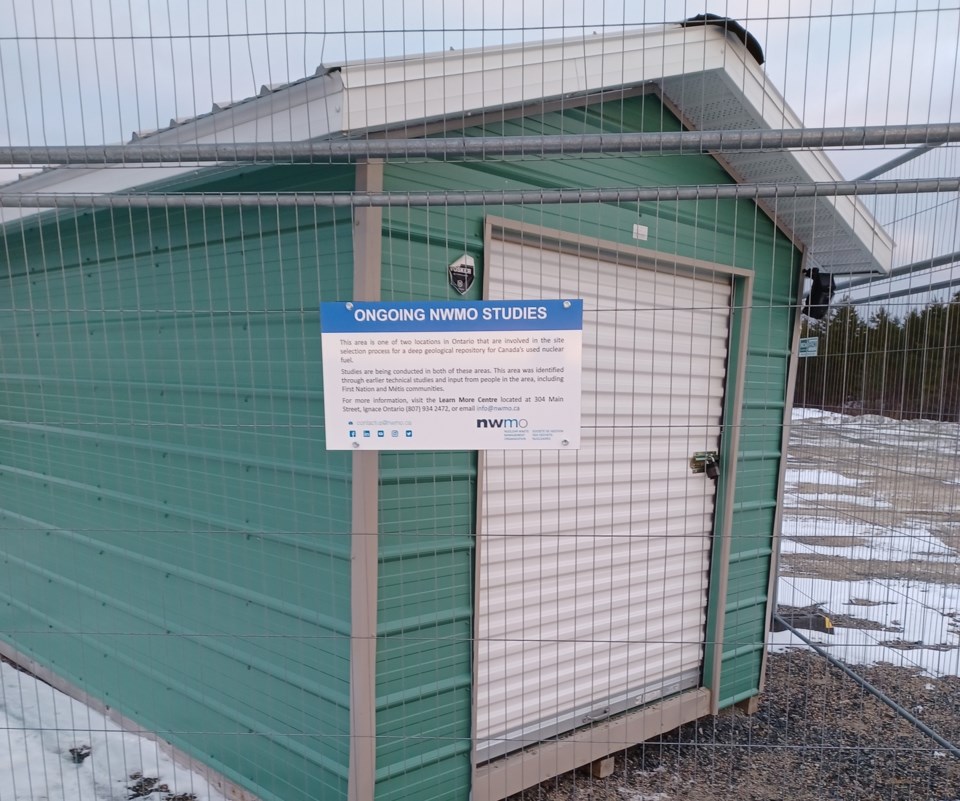SIOUX NARROWS – The Township of Ignace has said yes to a nuclear waste repository project, but five First Nations in the Lake of the Woods area say no way.
Storing nuclear waste between Ignace and Dryden would endanger the region’s ecosystem and violate their rights as Indigenous peoples, according to a declaration from the Anishinaabeg of Kabapikotawangag Resource Council (AKRC).
Ignace council approved a motion on July 10 to continue as a potential host community for the deep geological repository proposed by the Nuclear Waste Management Organization, a federally mandated body funded by Canada’s nuclear power producers.
The Revell Lake site west of Ignace is on the nuclear body’s shortlist of two places for siting the underground repository for spent nuclear fuel, the other location being in the South Bruce municipality in southwestern Ontario.
The organization has said it will select a site by the end of this year and construction could begin about 10 years later.
The proposed repository “threatens the very essence of our existence, the health of our ecosystems, and the spiritual and culture heritage” of those who live in the sprawling lake’s area, the AKRC declaration says.
The declaration further states that the nuclear project violates the First Nations’ treaty rights and sovereignty, as well as their right to “free, prior and informed consent” under the UN Declaration on the Rights of Indigenous Peoples.
The nuclear organization must “consider options that do not compromise the integrity of our lands and waters for future generations,” the AKRC declares.
Their declaration also pledges solidarity with other Treaty 3 communities, environmental groups and allies.
It is signed by the chiefs of Wauzhusk Onigum, Big Grassy River, Northwest Angle #33, Animakee Wa Zhing #37 and Ojibways of Onigaming.
Vince Ponka, regional spokesperson for the nuclear organization, said Wednesday that the repository’s proponents have been working with Wabigoon Lake Ojibway Nation and seeking that First Nation’s willingness in the project.
“Engaging with First Nations across the Northwest is a huge priority,” he added. “We have a team of people whose jobs are just that.”
If the Revell site is chosen, he said, “that’s when the engagement process will have to widen.”
The engagement process will include ensuring that there is accurate information about the project and its safety standards, he said.
